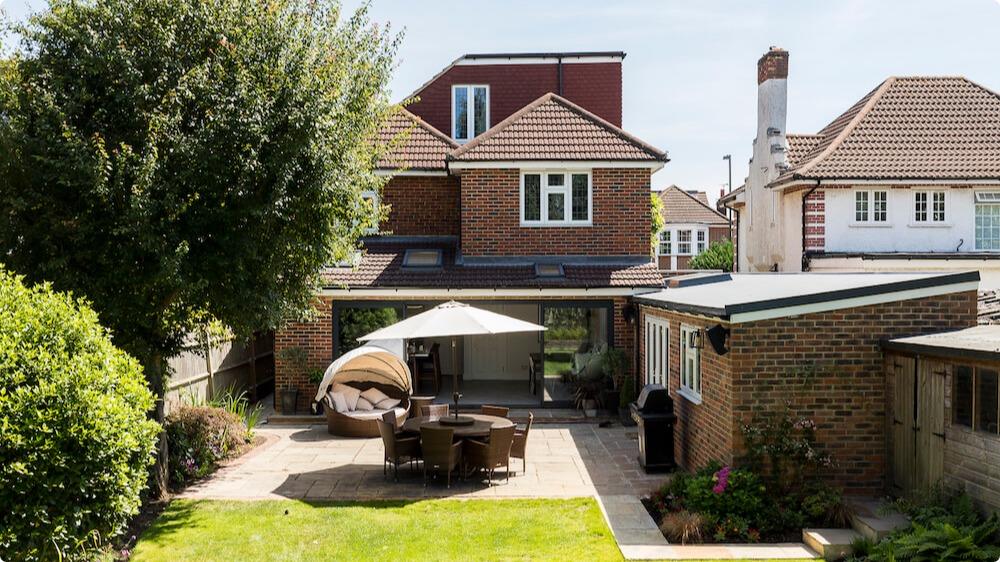There are lots of potential benefits to remortgaging, like saving money on your mortgage payments, but how much does a remortgage cost? Remortgage costs come in all shapes and sizes, and can include…
- Early repayment charge
- Exit fee
- Deeds release fee
- Arrangement (product) fee
- Booking fee
- Valuation fee
- Conveyancing fee/ Legal fee (solicitor fee)
- Broker fee
- New mortgage payments
However, while it might look like a long list, they won’t all necessarily apply to you. And even if it does seem like the remortgage fees are quite high, you may still be able to save money overall by switching onto a better deal.
Basically, it’s all going to come down to your circumstances, so read on if you want to discover how much your remortgaging could cost and what fee you should be aware of.
What are remortgage costs?
The cost of a remortgage can be broken down into two categories.
- How much it will cost to leave your current mortgage
- The cost of setting up a new mortgage
Each of these comes with a variety of professional and service fees, which will vary from lender to lender, and in regards to your own personal circumstances too. In this article, we’ll break down these charges, but if you want tailored remortgaging advice, don’t forget our Resi Finance service is always on hand.
Cost for leaving your current mortgage
Leaving your current mortgage won't come free, especially if you haven't been on this mortgage for very long. The costs involved with leaving a mortgage vary widely, so pay attention to which of these costs may apply to your circumstances and consider talking to a remortgaging specialist.
Early repayment charge
If you want to leave your current mortgage deal before it ends, you may need to pay a fee to your lender called an early repayment charge. This fee may also be charged if you overpay on your mortgage by more than your lender allows.
And when you’re looking at remortgage costs, if you have to pay an early repayment charge, this can be a significant amount. Early repayment charges can be a fixed fee but it’s usually a percentage, normally 1%-5% of the remaining amount you still owe on your mortgage. This is usually tiered with a higher percentage early in the deal, reducing as it nears the end of the deal. So it could be 5% in the first year, 4% in the second year and so on.
- For example, if you have £200,000 outstanding on your mortgage with an early repayment charge of 5%, you’d have to pay £10,000. While an early repayment charge of 4% would be £8,000.
However, you won’t necessarily need to pay an early repayment charge. Not all deals will charge these and if you’re on your lender’s standard variable rate (SVR) there are usually no early repayment charges. But the key message is you should always check so that you don’t end up with unexpectedly high remortgage costs.
How can I avoid paying early repayment charges?
If you’re looking at the costs involved in remortgaging you’re probably wondering if there’s any way to avoid paying an early repayment charge. To do this, you can:
- Check the deadlines. When you’re looking at how much does it cost to remortgage, get out your paperwork. You’ll see whether you do need to pay an early repayment charge and if so, the date when this will no longer apply. So waiting to remortgage until after this date could slash your remortgage costs.
- Choose a deal without early repayment charges. Some lenders offer deals that don’t charge early repayment charges. This is something to consider when you’re choosing your next deal.
- Don’t exceed your overpayment limit. Also bear in mind some lenders will charge the early repayment charge if you overpay on your mortgage by more than they allow. So check your limit and ensure you don’t go over it.
Want to find mortgages that exclude early repayment charges? Resi Finance can help you explore your options.

Exit fee
Another remortgage cost to consider is exit fees. These are charged for closing your mortgage account, such as if you remortgage. But it can also be charged when you pay off your mortgage.
When you’re adding up the costs involved in remortgaging, bear in mind exit fees typically range from £50-£200.
Deeds release fee
This is payable to your existing lender to cover the administrative costs of sending your property’s title deeds to your new lender. You can pay this upfront when you first take the mortgage out or when you leave.
The typical cost is between £50-£300, however, not all lenders will charge it. So when you’re looking at how much does it cost to remortgage, this may not apply to you.
Cost for getting your new mortgage
When it comes to finding a new mortgage, you’ll find the costs involved will vary from lender to lender. Therefore, if you’re looking to get the best deal, it helps to shop around and consider using a broker to find the right deal.
Arrangement (product) fee
An arrangement fee is what you pay the lender to set up your mortgage. And the cost of arrangement fees varies widely. You could be charged up to £2,000 or even more in some cases, while some products won’t charge an arrangement fee at all. And some are charged as a percentage of the loan, rather than a fixed amount. So it’s essential to consider this when you’re looking at costs involved in remortgaging.
You can usually choose between paying this fee upfront or adding it onto your mortgage, although this will increase the amount you owe and you’ll pay interest on it too.
When you’re comparing deals, it’s important to factor this in when you’re assessing which is the best mortgage for you.
Get help finding the right mortgage deal for you with Resi Finance.
Booking fee
This fee is sometimes charged when you apply for a mortgage and it isn’t usually refundable if you end up not taking the mortgage out. The typical cost of booking fees is around £99 to £250. However, some lenders don’t charge this at all.
Valuation fee
Your new lender will carry out a valuation on your home when you apply for a mortgage to determine the value of your home and check the property is adequate to secure the loan. When it comes to the costs involved in remortgaging, bear in mind some lenders won’t charge a valuation fee on certain mortgage deals.
However, if you do need to pay a valuation fee, typical costs are £300-£500, although it could be significantly more depending on the value of the property.
Explore how much you could borrow with our finance calculator.

Conveyancing/Legal/Solicitor fee
When you’re looking at how much does it cost to remortgage, don’t forget legal work is needed to remove your original lender’s interest from the property and register the new lender. When you're researching mortgages, you'll find many remortgages include a free legal package.
However, if you need to pay this yourself and you’re asking how much are legal fees to remortgage, it tends to be around £300.
Broker fee
Many people use brokers to help them find the best mortgage deal and if you do this you may be charged a fee for their service. This could be a fixed fee or a percentage of the loan amount, typically up to a maximum of 1%. Although, it’s usually much lower. So when you’re looking at remortgage fees remember to factor that in.
Looking for a broker? Look no further, at Resi Finance we work with over 400 lenders to help you find the right remortgaging deal.
New mortgage repayments
When you remortgage, if your new rate is different or if you have remortgaged to release equity from your property, you will pay a different amount on your monthly mortgage payments. If your new rate is lower, you will pay less each month. And if you release equity from your property when you remortgage, you may pay more each month, depending on the amount of equity you release and your new rate.
Will it be cheaper to stay with my current lender?
This will depend on your circumstances. For some homeowners, even if the remortgage fees are high, they will still be better off financially by remortgaging. While for others that won’t be the case. But the key is to find out. And the quickest way to do this is to speak to a mortgage broker who can run through remortgage fees, what mortgage deals are available to you and also what the potential savings are for you.
How can we help?
Searching the market yourself can be time-consuming, but with our help, we can search thousands of mortgages, including exclusive deals and lenders that you wouldn’t otherwise have access to. We have regular contact with a wide range of lenders, some of whom you may not even know exist!
With our help, you won’t have to search or contact each individual lender in order to compare the mortgage terms and rates; we’ll do all that for you.
Get started by trying out our borrowing calculator or get in touch by sending our team your remortgaging questions.


























